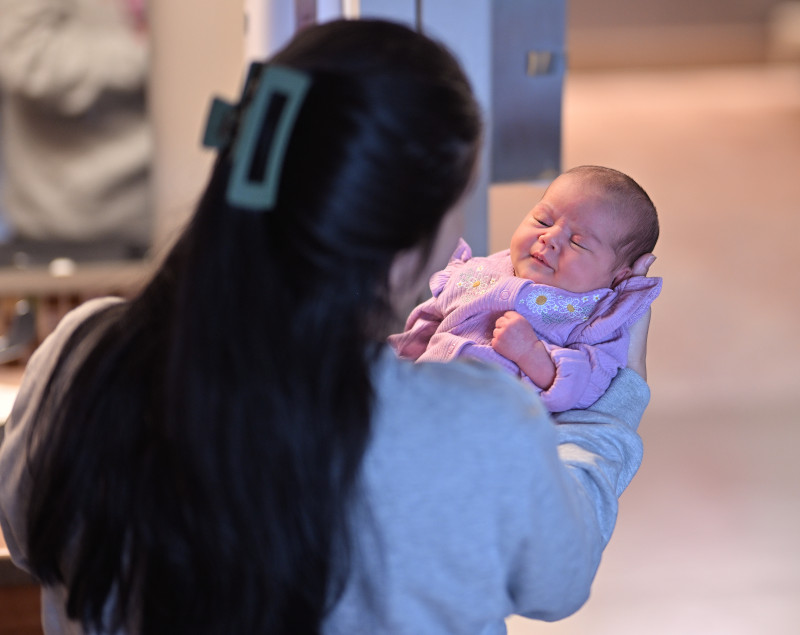
About
Spartanburg Medical Center has achieved a Baby-Friendly® designation — a global breastfeeding quality improvement project created by the World Health Organization (WHO) and the United Nations Children’s Fund (UNICEF). We are proud to be the only facility in Spartanburg County to have achieved this important designation.
What “Baby-Friendly” Means to You
Baby-Friendly hospitals, like Spartanburg Medical Center, have taken special steps and implemented specific policies and practices to aid parents in making informed, educated decisions about how to feed and care for their baby.
The “Baby-Friendly” Difference
Baby-Friendly care provides a supportive, intimate environment to enhance bonding between mother and baby for success in breastfeeding. This includes evidence-based practices proven to support families.
Maven Nurse
A maven nurse is an expert in infant care who will care for your newborn after delivery and during your initial recovery period. We often call this special nurse your baby’s first friend. She helps with skin-to-skin contact, assists in the golden hour (first hour after birth) to promote family-centered bonding, helps with breastfeeding and completes assessments to ensure safety for your new baby.
Rooming In
Unless you or your baby require specialized care, your baby will be with you throughout your hospital stay. Having mother and baby together as much as possible provides ample opportunity to get acquainted, especially with his or her feeding cues, as these are the best indicators to know when it is time to feed your baby. Research supports that you should expect to feed your baby eight to 10 times during each 24-hour period.
Skin-to-Skin
Unless you or your baby require specialized care, your baby will be placed directly on your chest after birth. This practice supports uninterrupted skin-to-skin contact between mother and baby. This skin-to-skin time helps with your baby’s transition outside of the womb, helps regulate baby’s body temperature, facilitates mother-baby bonding and is crucial for the first breastfeeding.
Breastfeeding Benefits
Breast milk is the gold standard in infant nutrition. Breastfeeding has health benefits for both mother and baby. Breastfed babies have reduced illness, less risk of obesity and less incidence of sudden infant death syndrome (SIDS). For mothers who breastfeed, they have less risk of later developing Type 2 diabetes and certain types of cancers. They also have a faster return to pre-pregnancy weight.
Breastfeeding mothers should consider the possible impacts pacifiers might have on breastfeeding, including:
- Difficulty for baby to attach to the breast
- Interference with cue-based feeding, possibly missing a feeding, leading to decreased milk supply
Breastfeeding mothers can decide when the appropriate time is for introducing a pacifier. Pacifier use in a breastfed infant should be delayed until breastfeeding is well established. This is typically around three to four weeks of life.












